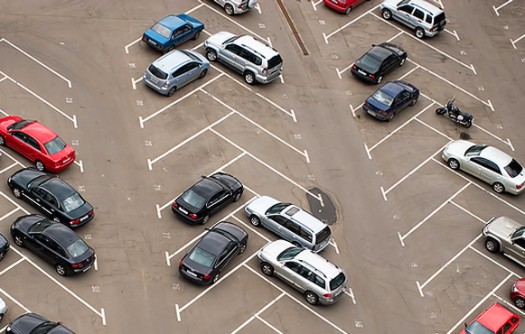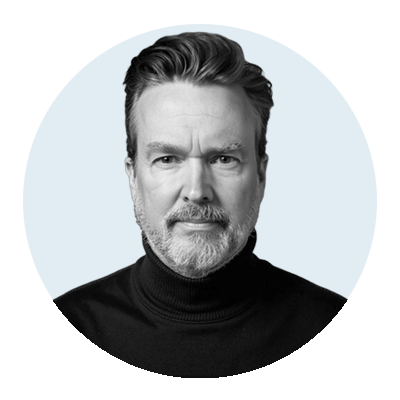A Placemaking Journal
Parking is a Commodity, Not an Experience
Yesterday the Atlantic ran a piece on the Great Retail Meltdown of 2017 which, to summarize, tied the present culling of the retail herd to three phenomena: the rise of online shopping; a half century of overbuilding retail space; and the present shift in spending from goods to experiences.
In short, with people increasingly getting their everyday stuff online and valuing an interesting meal with friends over a trip to the mall to get a Hollister sweater, our overly abundant providers of commercial goods are taking a beating.
These are the kinds of trends that ripple out well beyond Retail Industry News. Their impacts can be felt across all levels of community. So my interest as I read it isn’t so much in the specifics of what’s happening as it is in the underlying threads that inform the phenomenon overall and how those threads might impact prospects for local placemaking.
What we want
The abandonment of Main Street and rise of auto-dependent retail might have been made possible by a variety of factors — Federal transportation policy, cheap energy, affordable automobiles, modernist land planning, etc. — but those things weren’t the underlying motivation so much as they were the tools we used to answer it.
So what was the motivation? I’d suggest it was (and still is, really) a desire for the easiest possible access to the stuff we want at the time — a desire so strong, it seems to me, that we began structuring our entire built environment around its fulfillment.
That stuff, especially in the 20th century, tended to take the form of the latest in consumer goods.
That’s why we built bigger arterials which fed bigger chain stores with more of the items we wanted to get our hands on. And why we built malls, where the variety of available goods seemed to increase exponentially. And it’s also why we established hefty parking minimums. Because you’re not effectively delivering on the promise of easy access to goods if you can pave the way to a warehouse full of stuff but leave no space to park within a few feet of the door. And parking within a few feet of the door is a fundamental part of the need being fulfilled.
But what happens when times and technologies change, and new ways of addressing our needs emerge? Suddenly we’re afforded new opportunities to prioritize how we spend our time and money. That’s what’s happening now and it’s no surprise that we’re once again seeking to have our cake and eat it too.
Ch-ch-ch-changes
We’re still driven in many ways by easy access. That hasn’t changed much. What has changed is that online commerce has seemingly built a better mousetrap. In many instances it’s now far easier to get our everyday consumer goods online. To the point where a car trip of a couple miles and a short walk into the mall or big box — previously the pinnacle of consumer convenience — is now seen increasingly as an unnecessary waste of time and energy.
With it, the sprawling landscape engineered around those pursuits is losing its relevance.
Today, a lot of our shopping is simply easier, more affordable, and more respectful of our time than ever before via the internet. So, predictably, people are checking the idea of basic procurement off their to-do lists and moving on to other things — namely how they’d rather be spending their expendable time and money.
Enter a new sort of economic motivator — the valuing of experiences over goods — detailed in the Atlantic piece.

Local implications
Industry analysts have long-recognized the intersection of placemaking with the desire for socially-oriented experiences. And Main Streets, along with all the emerging development models that borrow from or contribute to them, are ideally suited to picking up the slack.
That bodes well for places committing themselves to smarter, more responsive models of growth and development. But with that, a note of caution:
In the 60s and 70s, many struggling downtowns made the crucial error of trying to compete with the blossoming ‘burbs by copying them — inevitably becoming nothing more than a not-as-good suburban wannabe.
They created more parking at the expense of historic buildings. They widened roads at the expense of walkability. They undid all the things that made them unique.
Today we run the risk of repeating those mistakes — applying conventional logic to new (or unfamiliar) circumstances. And perhaps unsurprisingly, those mistakes once again revolve around the automobile.
Don’t fall into the trap of thinking this renewed interest in what thriving Main Street environments can offer indicates a concurrent need for a reignited obsession with parking. Remember, in the mind of consumers, we’ve already solved for convenience. That’s not the driver anymore.
The bigger driver today is the value of the experiences. Which means the winners will be those who provide those experiences most fully — in all the ways dynamic places bubbling with people can.
An empty parking space is insufficient incentive for people to visit a place they don’t care about, or that fails to offer what they ultimately want. But a place brimming with the unexpected and characterized by opportunities for myriad social experiences is absolutely enough incentive for people to figure out a viable way to store their car — even when doing so is cumbersome or consumes a little extra time on the front end.
Conventional wisdom says that, in bustling places, your vacant parcel downtown should become a parking lot to handle the overflow. But the new wisdom says it should be developed with even more of the things — specialty shops, services, restaurants, housing, public space, and such — that deliver on the act of living rather than on some quest for convenience that’s no longer the primary driver of behavior when we’re out and about.
The stuff of life is the stuff we seek now.
–Scott Doyon
If PlaceShakers is our soapbox, our Facebook page is where we step down, grab a drink and enjoy a little conversation. Looking for a heads-up on the latest community-building news and perspective from around the web? Click through and “Like” us and we’ll keep you in the loop.









